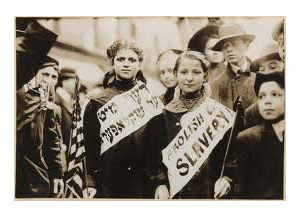The night before I sat down to write this column, I watched the movie 12 Years A Slave, a 2013 British-American historical drama film and an adaptation of the 1853 memoir Twelve Years a Slave by Solomon Northup, a New York State-born free African American man who was kidnapped in Washington, D.C., in 1841 and sold into slavery. He worked on plantations in the state of Louisiana for twelve years before his release.
The film recently won three Academy Awards: Best Picture, Best Supporting Actress for Lupita Nyong'o and Best Adapted Screenplay for John Ridley. It was awarded the Golden Globe Award for Best Motion Picture – Drama, and the British Academy of Film and Television Arts recognized the film with the Best Film and the Best Actor award for Chiwetel Ejiofor.
If you have not yet seen this powerful and masterfully-crafted film, I urge you to do so. You might well consider it an appropriate way to prepare yourself for Passover. The film, with its graphic depiction of human degradation and insufferable intolerance left me shaken and embarrassed to be part of a specie capable of such barbarity.
In our annual encounter with Passover, we are instructed by the haggadah to see ourselves as if we, personally, were liberated from Egyptian bondage. That is, for most of us, a profoundly difficult act of imagination to accomplish. Regardless of the questionable historicity of the Passover slavery story, chattel slavery–and other forms of human bondage–have been enduring phenomena through the millennia, right into the present time. 12 Years A Slave presents a chilling glimpse into our nation’s embrace of slavery but we need only look anywhere in our world to uncover–if we wish to see–forms of slavery that still endure and from which we often, indirectly benefit – i.e. child slavery in the underdeveloped world that produces so many of the cheap consumer goods that we enjoy.
On a daily basis our liturgy places upon our lips these words: Baruch Atah Adonai, Eloheynu melech ha-olam, sh’asani ben/bat chorin....We praise you, Adonai, Sovereign of Existence, who has made me a free person.” Passover arrives each year to remind us that these are not empty words. They are daily reminders of the precious blessing that most of us enjoy even as we dwell in a world where the same privilege is routinely denied others.
My Passover inspire us once again to be alert to the changes, even of the most incremental nature, that we can bring about in our world...the petitions we can sign, the informed buying choices we can make, the organizations that we can support in order to diminish the number of Pharaohs in this world. May we be blessed with understanding that slavery is no mere historic curiosity; it is a pervasive stain on the human condition that must be addressed in every generation.
Reb Elias



